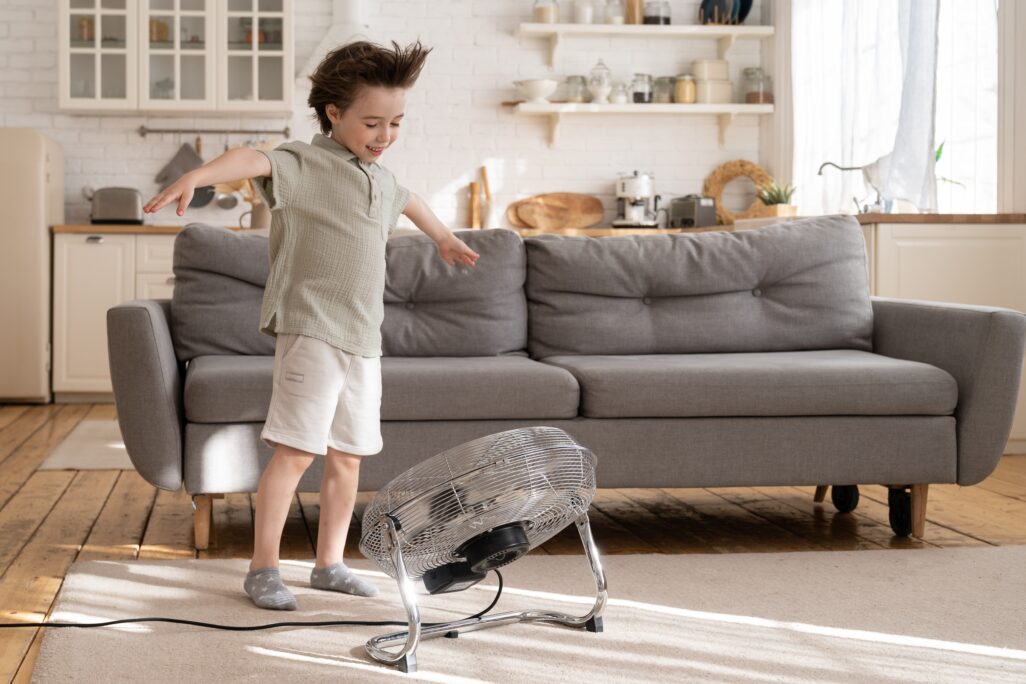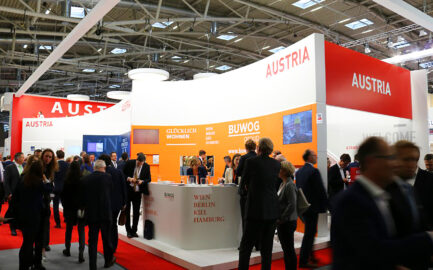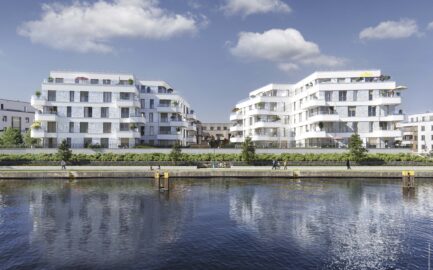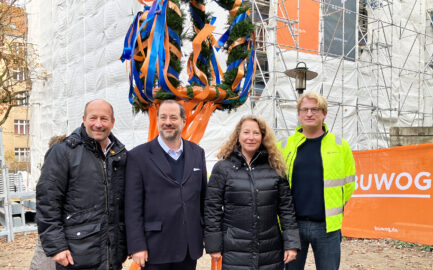When the next heat wave rolls in and the tropical nights begin to accumulate, we’ll all be searching for a way to cool off. But be careful: air conditioners consume loads of energy and lead to considerable costs. We have some climate-friendly and energy saving tips on how to keep the temperature in living spaces low so you can also keep a cool head during the next record-temperature summer.
In Austria’s households, the heating and cooling supply is responsible for a considerable share of energy consumption. Due to the climate crisis, climatic conditions in Central Europe have changed and there has been a sharp increase in the number of hot days in Austria in recent decades. Excessive heat in housing is a major challenge for many people in Austria. That is why sales figures for air-conditioning units soar, particularly in the summer months. Increased noise pollution, rising electricity consumption, environmentally harmful refrigerants built into the air conditioners and unexpectedly high electricity costs are often the unpleasant side effects of a hasty purchase. The increased energy prices now are having an even greater impact on people’s budgets. But in what other ways can your own home be kept as cool as possible?
Proper ventilation
In general, you should only ventilate when it is colder outside than in the living space. During the day, all windows should remain closed to keep the heat out. The drop in temperature at night can be used to cool the interior naturally. Another tip is to open the doors between the rooms. This equalises the temperatures, with the cooler room cooling the warmer one. If you have them, don’t forget skylights or windows on upper floors. As is well known, warm air rises and better ventilation reduces the accumulation of heat in the living space.
Outdoor shading
Shading windows reduces direct solar radiation in buildings and thus effectively helps to keep living spaces cool. External shading such as awnings and blinds are especially effective, while interior blinds have little impact because the sun’s rays are not prevented from entering the living space. The sensible greening of balconies, sun-exposed building sides and window areas can also contribute to a reduction in heat stress.
Indoor heat production
Electrical appliances radiate heat. Computers, electric ovens and dishwashers emit a particularly high amount of heat into the environment. Energy-efficient appliances emit lower amounts of heat. Thus electricity-saving household appliances are not only easier on the budget, but also help reduce the heat stress in the summer months. The most efficient appliances available on the market can be found at the klimaaktiv page topprodukte.at.
Fans
Ventilation and air movement has a cooling effect. Fans consume much less power than air conditioners and can increase the level of living comfort even when the heat is intense. When buying a fan, you should pay particular attention to the noise level. Good units are below the decibel value of 50 dB, very good units below the value of 40 dB. If the fan is intended for large rooms, you should opt for a more powerful device with a large rotor, so that the entire room can be supplied with an air flow.
And when none of that helps?
Anyone who suffers from heat stress and is considering buying an air conditioner should first try to cool the living space with the climate-friendly and energy-efficient measures mentioned above.
However, if cooling cannot be achieved despite the measures taken, an air conditioner is frequently unavoidable. When buying an air conditioner, however, you should not only pay attention to the place of use, frequency of use and energy efficiency, but also to the noise level. At topprodukte.at/topprodukte/haushaltsgeraete/kuehlgeraete you will find a selection of energy-efficient and high-quality products as well as tips on how to handle the appliances correctly.










